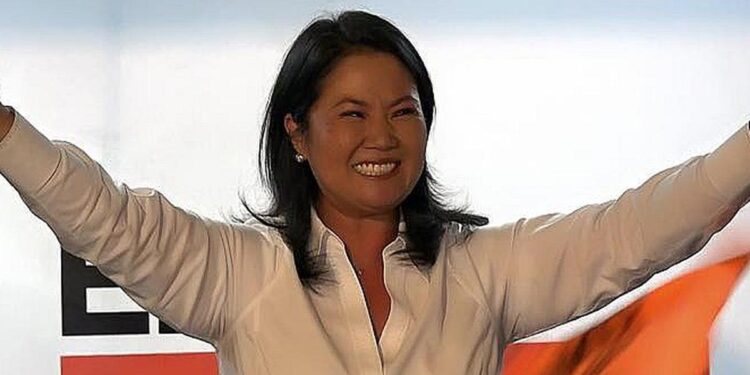RIO DE JANEIRO, BRAZIL – Few of the millions of Peruvians who will vote for Keiko Fujimori this Sunday, Juni 6, will do so with pleasure, as the candidate is often pointed out as a paradigmatic example of all the bad practices of politics in Peru, now reconverted into the hope to save the economic and social “model” established by her father, a disgraced former President.
In few places would it be feasible that a candidate facing charges of criminal organization and money laundering, for which the prosecution is asking for 30 years in prison, and who is on the verge of a trial that she will only avoid if she becomes president and obtains legal immunity, is close to winning a democratic election.

Even less likely is it that the candidate spent more than a year in prison (October 2018- May 2020) because the court feared she would interfere, using her political network, in the investigations against her.
Having had direct responsibility in the institutional and political crisis that Peru experienced during the last five years as a result of the destabilizing and obstructionist work that the Popular Force party did from the Congress under her strong leadership, is not a good letter of introduction.
Nor does it help that almost no one, according to the polls, trusts her word. Or that she unwaveringly vindicates the authoritarian government, the result of a coup d’état by her father, Alberto Fujimori (1990-2000), who installed the country in a cesspool of corrupt practices from which it has not yet emerged.
Moreover, she denies the human rights violations for which her father was convicted and is still on trial -murders, forced sterilizations, among others-.
She has supported her father despite the fact that he allegedly ordered the kidnapping and torture of her mother, while she set a political trap for her brother Kenji, for which he may go to prison.
And yet Fujimori, in a tribute to her political resilience and the particular situation in which the country finds itself – ravaged by Covid-19; immersed in a pressing economic crisis; and with a population exhausted and enraged by the failures of its political class – has a real chance of assuming the presidency after her failures to do so in 2011 and 2016.
POLITICAL VETERAN
Fujimori, 45 years old, and with university studies in business administration in the U.S., is an illustrious veteran of the country’s politics, in whose center she has lived since she was a child.
She is also aware of the fact that her biggest rival for the presidency – which she is contesting with leftist candidate Pedro Castillo – is herself.
Trained in the experienced cadres of Fuerza Popular and backed unanimously and without counterweights by the entire economic and social right-wing, and by the great majority of the media, in this second round Fujimori is not asking people to vote for herself. She is asking them to vote for Peru and against “communism”.
The conspicuous orange capital K that has been her slogan for years has been transformed into a Peruvian national soccer team jersey, and her only clear program is “the defense of the economic model” against Castillo, who proposes a complete transformation of the system established by the elder Fujimori in 1993.
Many Peruvians have joined this chorus, including her former “archenemy” Mario Vargas Llosa, who now sees less danger in this political survivor than in the rural schoolteacher who also aspires to the presidency.
In this struggle, Fujimori’s murky past has ceased to exist and promises such as respecting the rule of law, human rights, and not interfering in the investigations against her, are now somehow worthy of trust.
POPULISM
Keiko is married to American Mark Vito, one of her major public supporters, who is also under investigation for corruption offenses; she is the mother of two girls aged 11 and 13.
Her family profile became more relevant during her time in prison between 2018 and 2020, from where she came out placing even more emphasis on the policies of conservative evangelical Christianity, hostile to gender-focused policies, sex education in schools, and the expansion of rights for sexual minorities.
Despite her defense of the “model”, Fujimori has not hesitated to launch clearly populist economic proposals to multiply handouts or give part of the mining royalties directly to the population, measures that until recently the entire economic “status quo” that now supports her would have paradoxically branded as radical, “communist” and dangerous.
Fujimori also promised to end confinement to control Covid-19 and to lift quarantines to facilitate the recovery of the economy and the reactivation of all productive activities.

